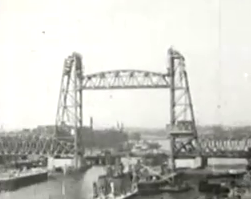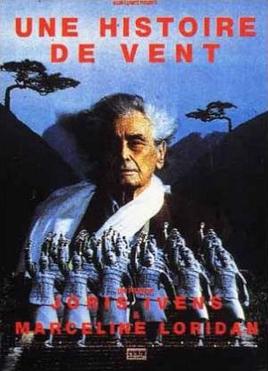Related Research Articles

Georg Henri Anton "Joris" Ivens was a Dutch documentary filmmaker. Among the notable films he directed or co-directed are A Tale of the Wind, The Spanish Earth, Rain, ...A Valparaiso, Misère au Borinage (Borinage), 17th Parallel: Vietnam in War, The Seine Meets Paris, Far from Vietnam, Pour le Mistral and How Yukong Moved the Mountains.

The Rijksmuseum is the national museum of the Netherlands dedicated to Dutch arts and history and is located in Amsterdam. The museum is located at the Museum Square in the borough of Amsterdam South, close to the Van Gogh Museum, the Stedelijk Museum Amsterdam, and the Concertgebouw.

Cinema of the Netherlands refers to the film industry based in the Netherlands. Because the Dutch film industry is relatively small, and there is little or no international market for Dutch films, almost all films rely on state funding. This funding can be achieved through several sources, for instance through the Netherlands Film Fund or the public broadcast networks. In recent years the Dutch Government has established several tax shelters for private investments in Dutch films.

The Spanish Earth is a 1937 anti-fascist film made during the Spanish Civil War in support of the democratically elected Republicans, whose forces included a wide range from the political left like communists, socialists, anarchists, to moderates like centrists, and liberalist elements. The film was directed by Joris Ivens, written by John Dos Passos and Ernest Hemingway, narrated by Orson Welles and re-recorded by Hemingway, with music composed by Marc Blitzstein and arranged by Virgil Thomson.
New Earth may refer to:
Ivens is a Germanic surname. Notable people with the surname include:
Indonesia Calling is a 1946 Australian short documentary film directed by Joris Ivens and produced by the Waterside Workers' Federation. The film depicts post-World War II Sydney as trade union seamen and waterside workers refuse to service Dutch ships containing arms and ammunition destined for Indonesia to suppress the country's independence movement. Ivens filming of the events taking place gradually became a symbol even for those who had not seen the film and had a growing following in the Netherlands, long before the film had an audience.
The Song of the Rivers is a 1954 documentary film production by the East Germany film studio DEFA. Dutch filmmaker Joris Ivens was the leading director. The sprawling film celebrates international workers movements along six major rivers: the Volga, Mississippi, Ganges, Nile, Amazon and the Yangtze. Shot in many countries by different film crews, and later edited by Ivens, Song of the Rivers begins with a lyrical montage of landscapes and laborers and proceeds to glorify labor and modern industrial machinery. The musical score is by Dmitri Shostakovich, with lyrics written by Bertolt Brecht, and songs performed by German communism's star Ernst Busch and famous American actor, singer and activist Paul Robeson who also narrates. Song of the Rivers is an ode to international solidarity.
Helen Victoria van Dongen was a pioneering editor of documentary films who was active from about 1925–1950. She collaborated with filmmaker Joris Ivens from 1925 to 1940, made several independent documentaries, and edited two of Robert Flaherty's films before retiring from filmmaking in her 40s.
How Yukong Moved the Mountains is a series of 12 documentary films directed by Marceline Loridan-Ivens and Joris Ivens about the Cultural Revolution. Ivens and his partner Loridan worked on the film between 1972 and 1974, and it was finally released in France in 1976. The film's title refers to Yugong Yishan, an ancient fable about the virtues of perseverance and willpower. At 763 minutes, it is one of the longest theatrical films by running time.

Rain is a 1929 Dutch short documentary film directed by Mannus Franken and Joris Ivens. It premiered on 14 December 1929, in the Amsterdam Filmliga's theater, De Uitkijk.

De brug is a 1928 Dutch documentary silent short film directed by Joris Ivens. This silent film explores the then-newly constructed Koningshaven Bridge in Rotterdam, an elevator railway bridge. The film looks at its structure, mechanisms, complex actions, and the steam-powered trains and ships crossing it.
Freundschaft siegt is an East German film about the 3rd World Festival of Youth and Students held in Berlin in 1951. It was directed by Dutch filmmaker Joris Ivens and Soviet filmmaker Ivan Pyryev, and released in 1952.

Our Russian Front is a 1942 American documentary film directed by Joris Ivens and Lewis Milestone, and narrated by Walter Huston to promote support for the Soviet Union's war effort.

A Tale of the Wind is a 1988 French film directed by Joris Ivens. It is also known as A Wind Story. It stars Ivens as he travels in China and tries to capture winds on film, while he reflects on his life and career. The film blends real and fictional elements; it ranges from documentary footage to fantastical dream sequences and Peking opera. It was Ivens' last film.

Mannus Franken was a Dutch filmmaker who played an important role in the development of Indonesian cinema. He made his debut as a writer before working with Joris Ivens in producing two documentary films. In 1934 he was called to the Dutch East Indies by Albert Balink to help with the production of Pareh (1936). Franken stayed in the Indies until before World War II, making newsreels. After the war he returned to the country and continued this work. In 1949 Franken returned to the Netherlands, where he made another film before his death.
The 27th annual Venice International Film Festival was held from 28 August to 10 September 1966.
The 400 Million, also known as China in 1938, was a 1939 black-and-white documentary film by Dutch filmmaker Joris Ivens about the Second Sino-Japanese War, part of the East Asian theater of World War II. The filmmaker moved between the Republican, Communist, and guerrilla forces of the Chinese resistance to Japanese invasion. Their dialogue in Mandarin is accompanied by English translations read by American actors.

Marceline Loridan-Ivens was a French writer and film director. Her memoir But You Did Not Come Back details her time in Auschwitz-Birkenau. She was married to Joris Ivens.